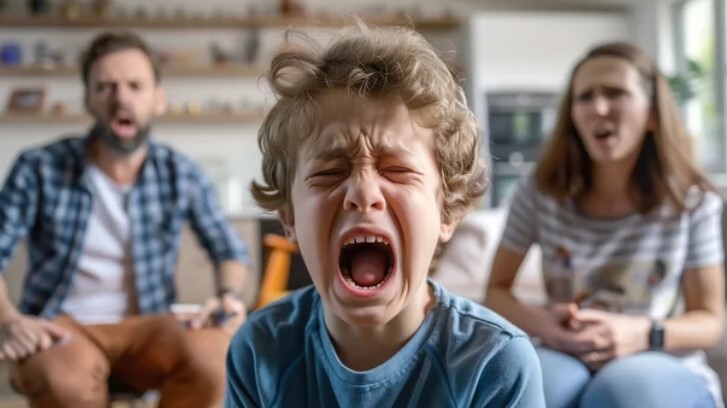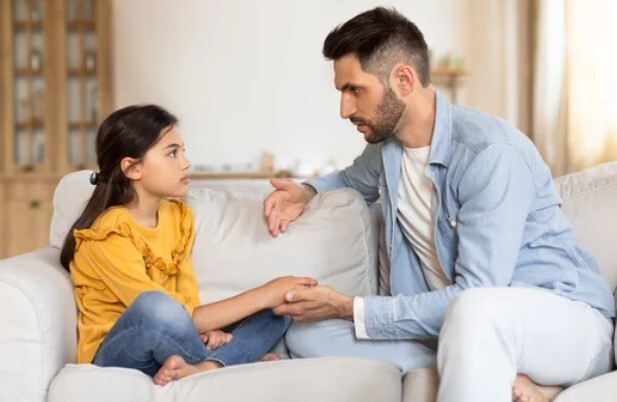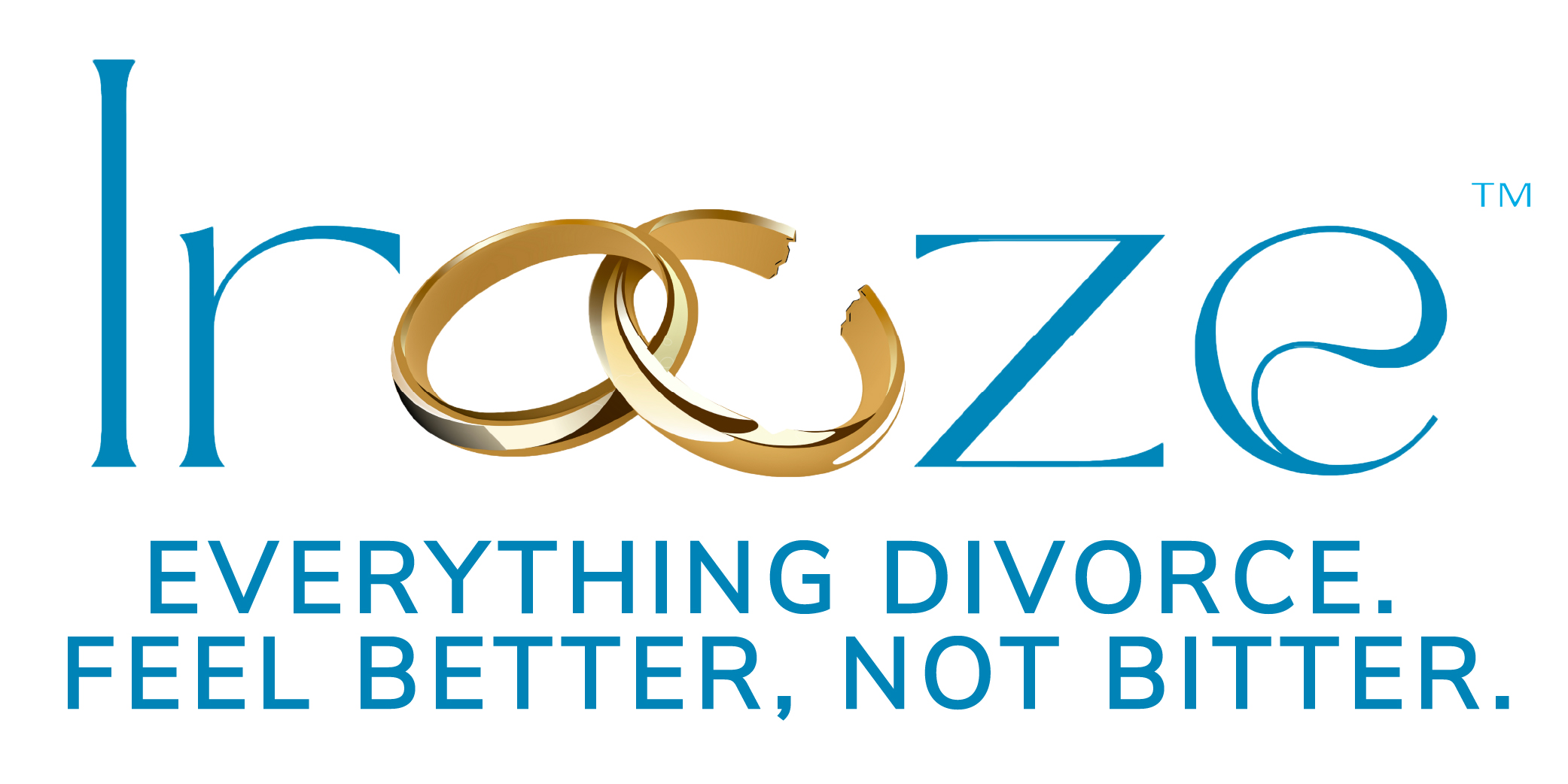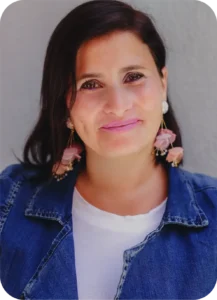In the tumultuous time during your divorce and even after, it’s easy to be caught up in what you’re juggling, what you’re managing, how you’re feeling, and your lingering resentments or holdovers towards your ex. The thing is through all of this, your children are there. They see you; they hear what you say, and as much as things feel overwhelming and out-of-control for you, they are the ones who are truly without any control in this situation.
However, there’s something important to remember. We can say that all children suffer or are impacted by divorce, but that’s not necessarily true. We can say that children are impacted by HOW YOU DO divorce. Your children are entirely dependent on you, and so how your children navigate this time will largely be a result of how you parent them through this time.
Of course, it’s not so easy necessarily if you’re in a high-conflict divorce, dealing with a combative and argumentative ex-spouse. You can only control yourself, what you say, and how you react through this, and we have resources that can support you in that as well, and that empowerment over your reactions can be used to be the guide for your children through this time as well.
Establishing a structured co-parenting plan can help minimize chaos for your children. Even in high-conflict cases, using a parenting coordinator or mediator can support healthier communication and reduce exposure to conflict. Tools like co-parenting apps can also reduce misunderstandings and document important communications.
How High-Conflict Divorce Affects Children Emotionally and Mentally

High conflict divorce tends to significantly impact children more simply because there’s more contention, more tension and fighting around them and usually more litigation. And unfortunately, the parents get caught up in the heightened emotions, whether it’s one parent who is the one creating chaos and the other is just trying to cope, or both who are still trapped in dysfunctional patterns of communication.
And in the middle are the children, and they tend to get lost in the mix. They begin to realize that they can’t really speak up for fear of upsetting or hurting one of their parents. They don’t want to be what they think will be the cause of inflaming the situation and creating more conflict. And so, they learn how to navigate and dance between the two households, displaying certain attitudes or behaviors according to what they think will help keep the peace, or they just become quiet and don’t express anything, and in some cases will act out and rebel on different issues because their true feelings and voices are being suppressed.
All of these things come into play with mental health and social emotional wellbeing. And kids do it in a variety of different ways. They internalize or they externalize, but they maladapt, meaning they’re not adapting well to the situation and they learn these maladaptive behaviors, such as not eating, isolating themselves, developing bad sleeping habits, etc.
Often parents will see these changes as separate from the new reality and begin to wonder “what’s wrong with my child?” However, if you are experiencing a high-conflict divorce at the same, take into consideration the effect that stress and anger has on our mental and physical well-being and look at the bigger picture of what your child may be going through to connect it with the physical, emotional or behavioral changes you see in them.
Keep in mind that age plays a big role in how children respond to divorce. Young children may regress (e.g., bedwetting or tantrums), while teens might withdraw, become defiant, or take sides. Tailoring your support and conversations to their developmental level ensures you’re addressing their real needs, not just their visible behaviors.
Helping Kids Speak Up in Divorce: Why Active Listening Matters

The question is how do we allow our children to express themselves in this situation without taking it personally or using it to lash out at the other parent? How do we allow them to express things such as, “I don’t like this”, without making them think they will be hurting us by saying it?
We have to provide that space without taking it on ourselves, without instantly questioning whether we’re doing something wrong, without jumping into “fix it” mode and without blaming the other parent? How do we do that? By remaining as neutral as possible. If they say, “this sucks”, our answer has to be focused on validating their feelings and nothing more, so we reply with, “I know this is hard, I’m sorry, you’re right, it does suck,”, instead of things like “yeah, this is your father’s fault”, or “here’s what we’ll do” and shift into warrior mode, ready for battle and retaliation.
Especially in the case of a high-conflict divorce, where it is often one party that is creating the instability and tension, your kids will come back from their time with them emotional and dysregulated. While it’s very easy to jump on that wagon and get upset for them and react to their outbursts, they need you to be their rock instead. They need you to help them co-regulate, calm down, and express what’s going on for them.
If you’ve noticed sudden mood swings or behavior shifts after your child returns from time with the other parent, you’re not alone. These reactions are common in high-conflict divorce situations. Check out these 3 tips for parents when dealing with your child’s behavior changes after a visit with the other parent for practical strategies to help you respond calmly and supportively.
There are dangers of a child feeling a sense of betrayal between the parents if they complain about one to the other. Your calm response of active listening will encourage them to see that they can open up to you without feeling as though they are betraying or “ratting out” one parent to the other. Hear them without being triggered, without trying to prove them wrong or blame the other parent. At the end of the day, children want to feel free to love each parent equally.
Protecting Your Child’s Emotional Safety and Trust
Also, during a divorce, it’s easy for the child to internalize the events around them and to feel that any conflict between their parents is because of them, to project further and decide that they are the problem and if they weren’t there, their parents wouldn’t be fighting, and further suppress their emotions.
When these things happen, ask yourself “If I get upset and react, will that strengthen my relationship with my child in the long run? What does my child need right now?”
If you react and run to confront the other parent, what are you showing your child? You are showing them that they can’t trust you, that you are not a safe outlet for them to express their feelings. The same applies if your child is seeing a therapist or a counselor during this time.
Sometimes it can be beneficial, but if you get to the point that you are in court or going through a trial, and you bring in the therapist to testify for the child, all you’re showing them is that even their therapist isn’t a safe person to talk to. They need to know that what they tell you will not be used against the other parent, because the only one who will suffer repercussions in that situation is the child, who will simply learn to keep it all to themselves.
(Of course, if we’re talking about physical abuse, that should always be reported and dealt with. In those cases, you can explain to the child that telling an adult is always the right thing to do, and never to stay silent in those cases)
In some high-conflict cases, the court may appoint a Guardian ad Litem (GAL) or child advocate to represent your child’s best interests. While not every situation calls for this, it’s worth asking your attorney whether it could help ensure your child’s voice is heard without putting them in the middle.
Mistakes to Avoid When Supporting Your Child in a High-Conflict Divorce
- Don’t use your child as a messenger between you and your ex.
- Avoid asking your child to report on the other parent’s actions.
- Never criticize the other parent in front of your child — even if it feels justified.
- Don’t minimize your child’s emotions or try to “fix” them too quickly.
- Avoid turning your child into a therapist or emotional support system.
How to Create a Stable, Healthy Environment for Kids After Divorce

While therapy, or counseling for your child may be beneficial, here are some things to think about. Not every therapist is trained to work with a high-conflict divorce. It’s important to find a professional who specializes in high-conflict divorces or anger management who can help you with this area. Ask them questions for yourself, such as “How do I speak to my kids? What do I tell them? What do I not do? What’s going to affect them in the long term?” This will help you support your child during the in-between times when they are not in session with their counselor, and help you create a safe and trusting environment for them to express themselves.
In the interest of creating a support system for your children, seek out other adults who are close to you or in your lives that can provide that outlet for them, as well as model healthy relationships while maintaining neutrality. This may be family friends, teachers, coaches. If they are willing to be that support, you can encourage your children to speak to them as well, if they need. This will also teach them that there can be healthy dynamics with other adults in their lives. Our vision tends to get tunnel-like when we are experiencing tension or emotional situations, and we forget that there are others outside of our small family circle who can relate or be understanding.
When you’re in the thick of it in a high-conflict divorce, with court battles and frantic emails and arguments, it’s easy to lose track and forget about the impact on your children. However, that should be a priority at the top of your mind.
Helping Your Child Thrive Through Emotional Support and Stability
By taking the time to be present and the effort to detach your emotions from what your child is telling you, you will create a safe and supportive relationship where their feelings are validated and they feel heard and loved. Bringing in a professional that they can speak with privately can help, but it doesn’t have to be the only option. Building a network of caring, healthy adults that they can confide in can be all they need, giving them stability, security and space to be themselves. At the end of the day, the goal is not just to “get through it”, but rather to put in place the structure and practices that will help your children thrive.
If you’re dealing with a high-conflict divorce and are concerned about how to support your children through this experience, take a look at the Irooze Divorce Directory where you can find High-Conflict and Anger Management Specialists. Take the Self-Assessment Quiz to clarify where your priorities and needs may lie. Once you take the quiz, you will be able to book a Strategy Session with a Divorce Specialist Coach, and the two of you can identify where to start and create a plan to move forward.
Disclaimer:
The information provided in this article is intended for general informational purposes only and is not a substitute for professional advice, diagnosis, or treatment. We aim to support and guide individuals in their personal growth and development. The content of this article should not be used as the sole basis for making decisions regarding your well-being. Always consult with a qualified professional before making any significant changes to your life or treatment plan.





